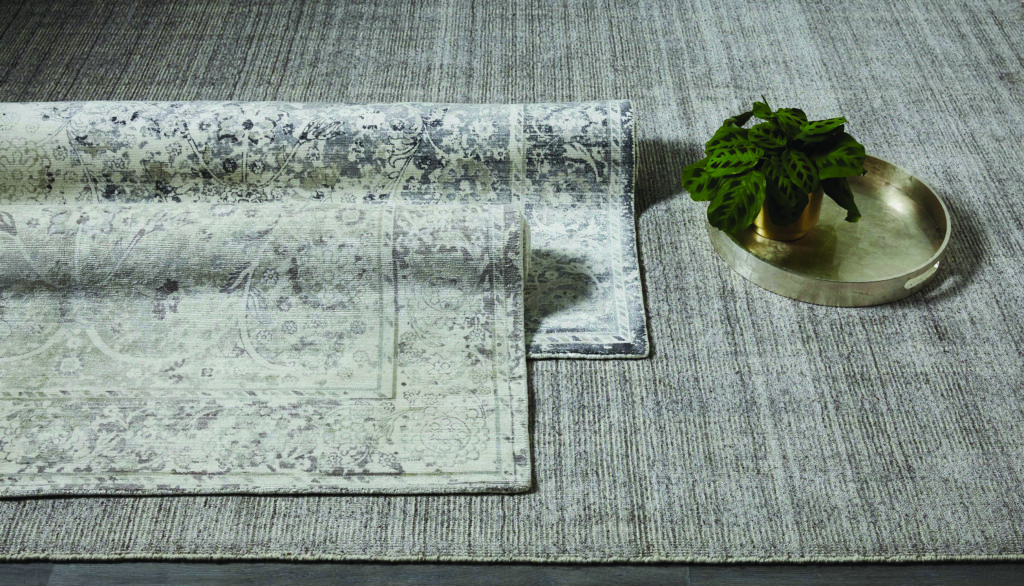
by Julia Szabo
It’s only natural to crave a cushion of warmth underfoot during the winter season. But there’s nothing natural about the material making up the majority of today’s inexpensive floor coverings: polypropylene, aka olefin, a synthetic fiber derived from petroleum. Machine-spun polypropylene enables rugs to be manufactured so cheaply, they’re replaced with alarming frequency. That’s bad news for the environment: when trashed in landfills, those rugs take literally centuries to degrade. Eco-aware consumers can’t afford the hidden cost of cheap, chemical carpets: invisible toxins released into the home atmosphere as the synthetic fibers off-gas endocrine-disrupting flame retardants, fungicides, and other harmful VOCs (volatile organic compounds).
Happily, refined rug options are becoming more accessible to anyone who prefers that furnishings for the home sanctuary be as benevolent as they are beautiful. Solo Rugs partners with artisans around the globe to offer design aficionados more than 300,000 unique, luxury rugs made of hand-knotted natural fibers, at wholesale insider prices. The palette of colors is impressive: hot pinks, cool cobalts, neutral tones of sand and cloud gray. Whether your taste runs to heirloom antiques or ultra-modern contemporary, there’s a Solo Rug to ground it.
Besides color and pattern, the rugs come in a variety of piles to complement any décor style. “A high pile versus a low one can completely change the feel of the rug and the room,” says Solo Rugs founder Noah Krinick. “If a rug is sheared down to a distressed level, you get a more vintage, masculine look. A high pile with some shag to it is ideal for a bedroom aesthetic—but for practicality, just be sure that the bottom of the door isn’t hitting the rug.” Satisfied customers have Solo Rugs in unexpected rooms, even the kitchen.
“We import from many different places,” Krinick says, “but the majority of our rugs come from Pakistan, from one supplier, are 99 or 100 percent wool, and dyed using natural and—most of the time—organic vegetal dyes.” Like most Solo customers, Krinick prioritizes sustainability when covering the floors he shares with his wife and children. “It was important for us to have hand-knotted wool rugs at home, so that we maintain a nice design aesthetic—and from a durability perspective, we never worry about the kids spilling anything, because the rugs are easy to clean.” solorugs.com





